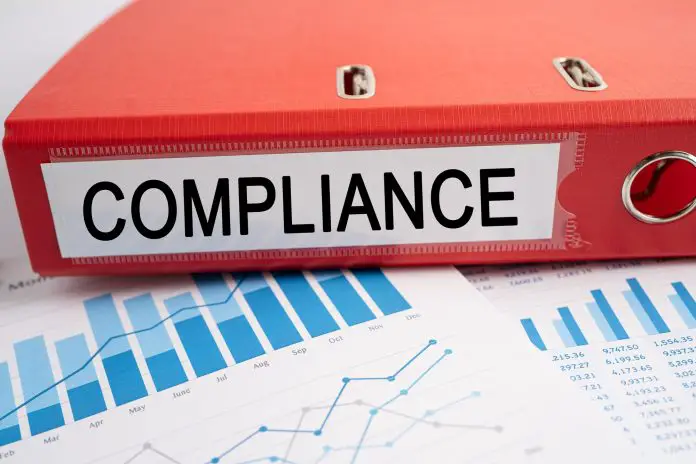The Children’s Online Privacy Protection Act, or COPPA, is a critical law that protects children’s online experiences. Aimed at kids under 13, COPPA gives parents the power to control their child’s personal information on websites and apps.
According to COPPA, websites and online services must secure verifiable parental consent before collecting any personal data from children. This law ensures that parents have the ultimate authority over their child’s sensitive information. Explore this guide to uncover COPPA’s regulations and learn how to comply effectively.
Key Takeaways

- COPPA (Children’s Online Privacy Protection Act) is like a shield, protecting the privacy of children under 13 by controlling how their personal information is gathered online.
- Websites and online services must clearly inform parents and obtain verified consent before collecting any personal data from kids. Think of it as asking for permission before borrowing a toy.
- This law applies to any online platform designed for children or that knowingly collects data from those under 13, ensuring a safer digital playground.
- To comply with COPPA, platforms must provide complete privacy notices and adhere strictly to guidelines for data collection and usage, like following the rules of a game to keep it fair.
What is COPPA?

COPPA, or the Children’s Online Privacy Protection Act, is a critical U.S. federal law that protects children’s online privacy. Imagine your favorite online game as a lively playground. Just as parents want to know who their kids are playing with, COPPA ensures they understand what personal information is collected from children under 13.
Under COPPA, websites and online services must obtain verifiable parental consent before collecting any personal information from kids. If a site wishes to gather data like a child’s name or email, it must initial secure a parent’s approval—much like asking for permission before borrowing a toy. Noncompliance can result in hefty penalties, including significant fines.
Enforced by the Federal Trade Commission (FTC), COPPA applies to any online service aimed at children or that knowingly collects their data. This includes games, apps, and educational websites. By following COPPA regulations, businesses not only comply with the law but also show their dedication to children’s rights and online safety.
Definition of COPPA
The Children’s Online Privacy Protection Act (COPPA) is a critical federal law designed to protect children’s online privacy. It requires websites and online services that collect personal information from children under 13 to obtain verifiable parental consent. Think of it as a digital shield, empowering parents to oversee what information is shared about their children in the vast online world.
COPPA compels operators of child-directed websites to clearly disclose their data collection practices. This law not only safeguards children’s data but also mandates businesses to do strong measures to protect personal information and comply with FTC regulations. In the end, COPPA creates a safer online environment for young users, ensuring their privacy remains a top priority.
Purpose of COPPA
The Children’s Online Privacy Protection Act (COPPA) is a critical shield for children’s online privacy, empowering parents to oversee the data collected from their children under 13. Imagine it as a digital fortress: online services must obtain verifiable parental consent before collecting any personal information.
Parents act as guardians of a treasure chest—COPPA enables them to control who accesses their child’s precious data. Websites and apps targeting children must provide clear notifications and secure consent, ensuring responsible data practices. Enforced by the Federal Trade Commission (FTC), compliance is not just a best practice; it’s necessary to avoid hefty penalties.
COPPA Effective Date
The COPPA Effective Date is April 21, 2000, marking the launch of the Children’s Online Privacy Protection Act. This critical law requires websites and online services to obtain verifiable parental consent before collecting personal information from children under 13. Think of it as a digital fortress, empowering parents to protect their child’s online identity.
Why is this significant?
Just as a parent wouldn’t let their child wander through a crowded mall alone, COPPA acts as a shield against the dangers of the online world. It mandates companies to be transparent about their data collection practices and prioritize children’s online privacy, creating a safer digital place for our youngest users.
Who is Covered by COPPA?
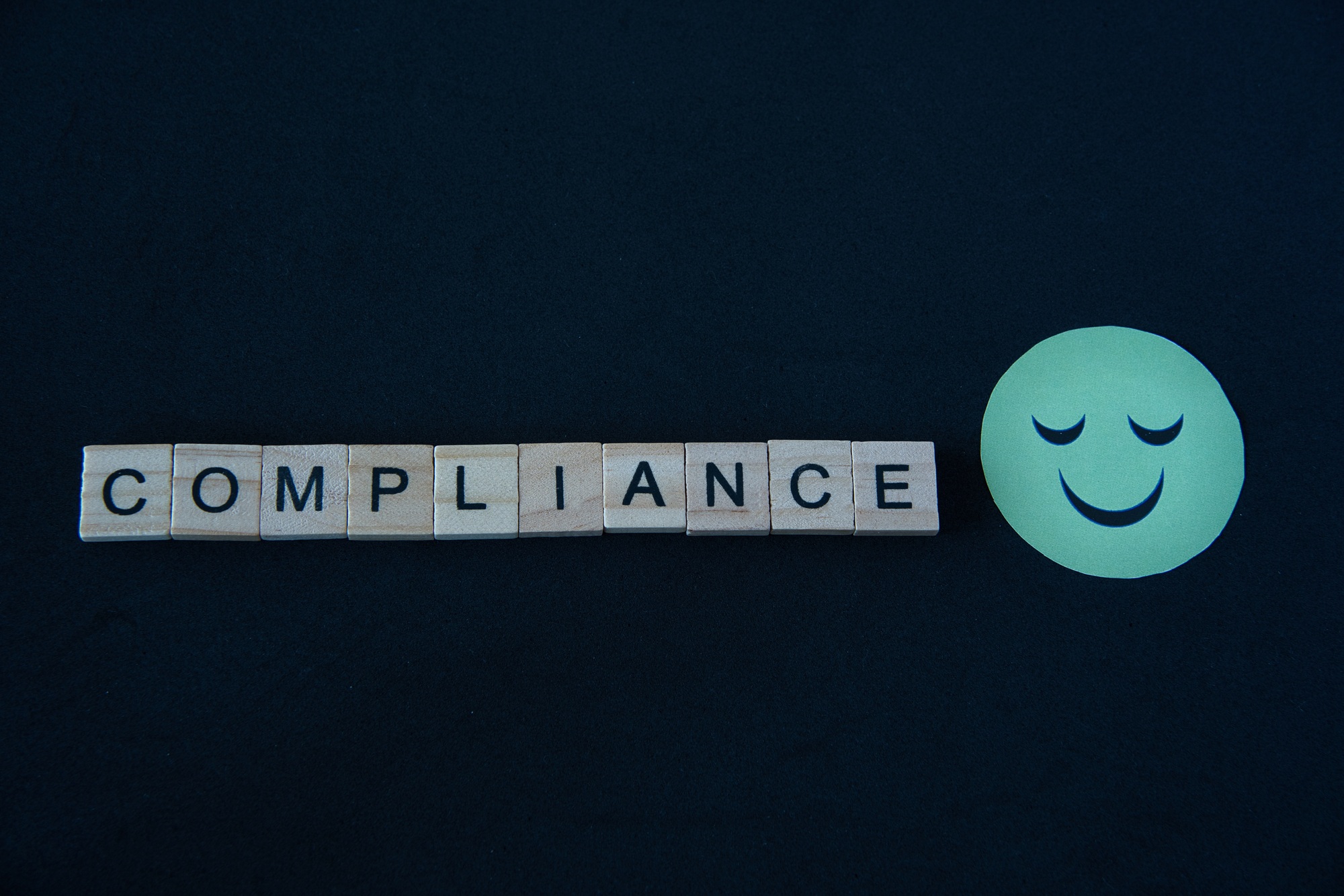
The Children’s Online Privacy Protection Act, or COPPA, is a critical federal law designed to protect the online privacy of children under 13. But who does this law truly safeguard?
Picture COPPA as a digital fortress, guarding kids’ personal information from the vast and unpredictable internet.
COPPA applies to any website or online service that targets children or knowingly collects their personal information. This includes popular mobile apps, games, and social media platforms aimed at younger users. If a site collects data such as names, addresses, or geolocation, it must comply with COPPA’s strict regulations.
To make sure children’s safety, these services must obtain verifiable parental consent before gathering any personal information. Think of it as a coach needing permission before a child can join a sports team—parents must be informed and give explicit approval. Without this consent, collecting children’s data is strictly forbidden!
In short, any platform that collects personal data from kids under 13 is required to follow COPPA guidelines. This isn’t merely a legal obligation; it’s a commitment to safeguarding our children in the digital world.
Operators of Online Services
Operators of online services must adhere to the Children’s Online Privacy Protection Act (COPPA) when collecting personal information from children under 13. This law requires verifiable parental consent before any data collection. Think of it like needing a parent’s permission before borrowing a toy; it’s all about protecting children’s information.
These operators include commercial websites, mobile apps, and online games that target children or knowingly collect their data. They are obligated to clearly explain what information is gathered and how it will be used. Ignoring these rules can lead to serious COPPA violations and hefty fines.
COPPA acts as a shield, ensuring that children’s online privacy is respected and their personal information is handled responsibly. Just as you wouldn’t allow a stranger to take your favorite game without asking, COPPA ensures companies seek permission before collecting data from kids.
Types of Online Services Covered
The Children’s Online Privacy Protection Act (COPPA) is a critical law that protects the personal information of children under 13 by regulating different online services. But what types of services does this cover?
Let’s jump in:
- Commercial Websites: Interactive platforms designed for children, like gaming and educational sites, where learning is as fun as play.
- Mobile Apps: Engaging applications tailored for kids, from interesting games to educational tools that ignite curiosity.
- Online Services: Any digital space that interacts with children and collects their data, including social networks and virtual classrooms.
These services must obtain verifiable parental consent before collecting or using a child’s personal information, acting as a protective barrier for their privacy.
Exceptions to COPPA Coverage
Exceptions to COPPA Coverage allow certain online services to collect children’s data without requiring parental consent. Think of it like a game where some players can make strategic moves without breaking the rules. Here are the key exceptions:
- Educational Purposes: Schools can provide consent for online services strictly aimed at enhancing learning.
- Internal Operations: Data collected for internal use, without public sharing, may not need consent.
- Anonymous Data: Information that cannot identify a child is exempt from COPPA regulations.
These exceptions illustrate that while protecting children’s online privacy is critical, some flexibility is necessary in certain contexts.
Children’s Online Privacy
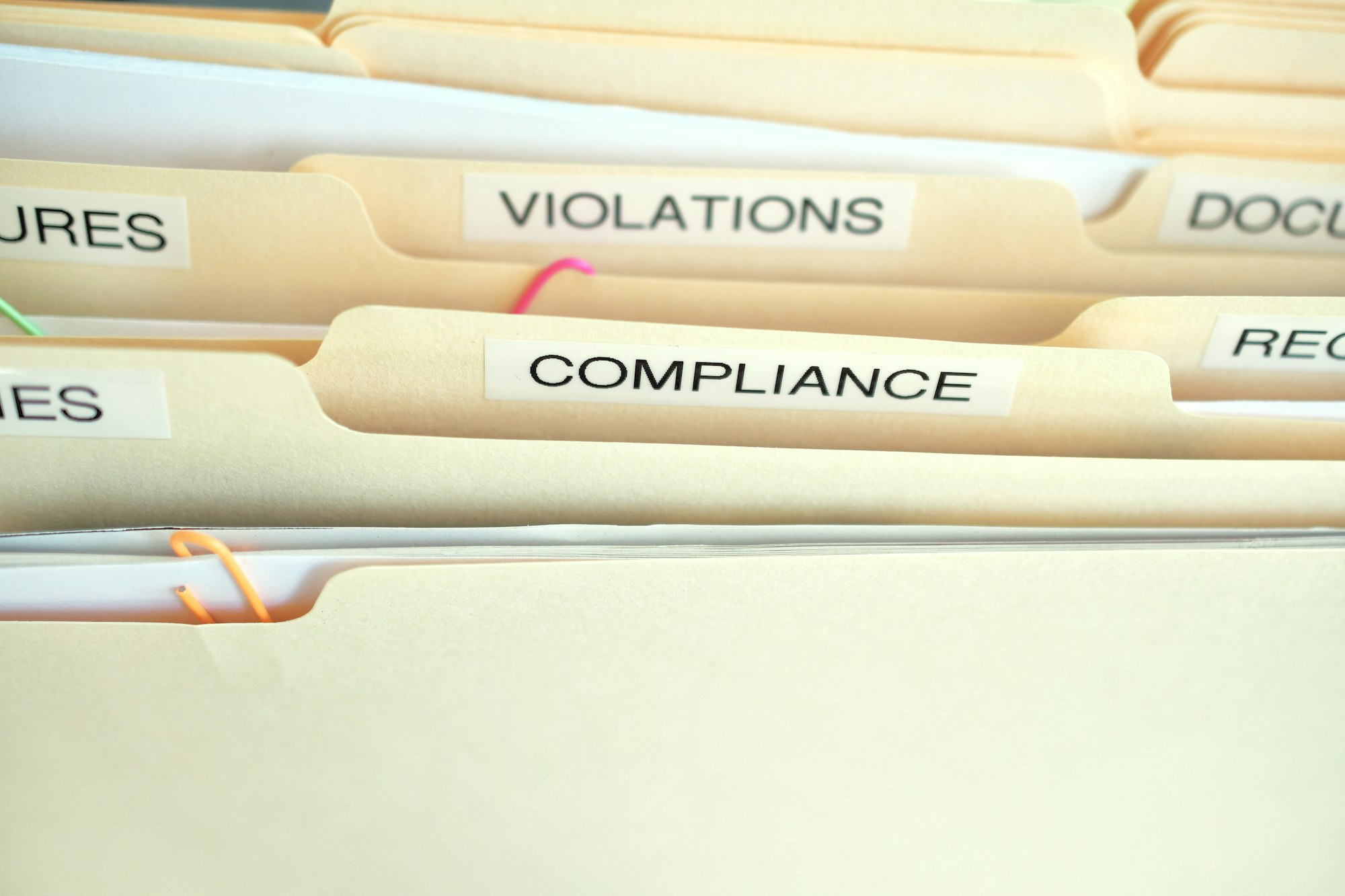
COPPA, the Children’s Online Privacy Protection Act, is a critical federal law designed to protect children under 13 from online threats. Imagine your personal information as a treasure chest; COPPA ensures that only parents have the key. This law requires websites and online services that collect personal information from children to secure verifiable parental consent before any data collection occurs.
Why is this significant?
Children often don’t fully grasp the risks of sharing their personal information online. COPPA empowers parents to monitor what data is collected and how it’s used. For instance, if a site targets children and wants to gather their data, it must provide a direct notice to parents and obtain their consent. This notice details the information being collected, including names, addresses, and even geolocation data.
Failing to comply with COPPA can lead to serious consequences, including hefty fines. The Federal Trade Commission (FTC) enforces these regulations, holding companies accountable for violating COPPA. Understanding COPPA is necessary for protecting your child’s online privacy and ensuring their safety in the digital world.
Definition of Personal Information
Personal information refers to any data that can identify a child under 13, including their name, address, or online usernames. Imagine it as a puzzle piece: alone, it appears harmless, but when linked with other pieces, it reveals a full picture of a child’s identity. Under COPPA, websites must obtain verifiable parental consent before collecting this sensitive information. Why is this critical?
It protects children’s online privacy and gives parents control over the data shared about their kids.
Examples of Personal Information
Examples of personal information protected by COPPA include:
- Names: Your child’s name is a key, opening their unique identity.
- Addresses: This reveals their home location, much like a return address on a letter.
- Email addresses: Think of this as their digital mailbox, collecting messages and significant information.
- Geolocation data: Imagine it as a treasure map, pinpointing their exact whereabouts!
- Device IDs: These are unique identifiers for their devices, akin to a technological fingerprint.
Understanding personal information empowers you to protect your child’s online privacy. Make sure that websites secure verifiable parental consent before collecting any data.
Collection of Personal Information
The Children’s Online Privacy Protection Act (COPPA) serves as a digital guardian, requiring websites and online services targeting children under 13 to secure verifiable parental consent before collecting any personal information. This law is designed to keep your child’s data safe by compelling operators to provide a clear notice about the information they collect and how it will be used.
When a site wants to gather personal information, it must obtain parental consent through reliable methods, like sending a confirmation email or requesting specific identification. Without this verifiable consent, companies cannot collect or store your child’s data.
Imagine needing a parent’s permission to enter an amusement park; that’s how COPPA safeguards children online, ensuring their privacy is respected. Failure to comply can result in hefty penalties from the Federal Trade Commission (FTC), the authority enforcing these critical regulations.
COPPA Requirements

The Children’s Online Privacy Protection Act (COPPA) serves as a critical shield, safeguarding the privacy of children under 13 in the digital place. Think of it as a protective barrier, empowering parents to oversee their children’s personal information. But what exactly does COPPA entail?
At its core, COPPA requires websites and online services targeting children to secure verifiable parental consent before gathering any personal data. Operators can’t simply accept a child’s word; they must verify that the consent originates from a parent or guardian. What types of information are we protecting?
This includes names, addresses, and online contact details.
- Direct Notice: Operators must deliver clear, concise notifications to parents about their data collection practices.
- Retention Rules: Collected personal information should only be retained as long as necessary.
- Compliance Measures: Websites must establish reasonable procedures to protect children’s data.
COPPA not only shields children but also empowers parents, ensuring that children’s online privacy is upheld. By adhering to these regulations, businesses can avoid significant fines and nurture trust with families.
Create a COPPA-Compliant Privacy Policy
Creating a COPPA-compliant privacy policy is like building a protective shield for children’s online data. It gives parents the power to control what personal information is collected from their kids. Start by clearly defining the personal information you gather, how you use it, and who you share it with. Most significantly, explain how parents can give verifiable consent before any data collection begins.
- Direct Notice: Provide a clear notice to parents about your data practices.
- Parental Rights: Explain how parents can review or delete their child’s information.
- Accessibility: Make sure the policy is easy to find on your website or app.
This policy is not just a formality; it’s a critical step in protecting children’s online privacy and complying with COPPA regulations. Think of it as a compass that guides parents through the digital world, ensuring their children’s safety at every turn.
Get Verifiable Parental Consent
Getting verifiable parental consent is like opening a treasure chest that safeguards your child’s online privacy. Under the Children’s Online Privacy Protection Act (COPPA), websites and apps collecting personal information from kids under 13 must secure this consent. But how can they be sure it’s really a parent giving the thumbs-up?
Think of it as a digital handshake—operators must verify the identity of the consenting adult.
Methods for obtaining consent include signed forms, credit card transactions, or even video chats. These reasonable procedures serve as a protective shield, preventing unauthorized data collection. Ignoring the need for verifiable consent can result in hefty fines for COPPA violations.
- Why is it significant? It stops companies from misusing children’s data.
- How does it work? Parents must be clearly informed about what data is collected and how it will be used.
- Who enforces this? The Federal Trade Commission (FTC) ensures compliance.
Obtaining verifiable consent isn’t just a box to check; it’s a critical step in protecting your child’s information in the vast online world.
Consent Exemptions
Consent exemptions under COPPA reveal situations where parental consent isn’t needed to collect children’s personal information. Imagine a school using an educational app: if it gathers only basic data for internal purposes, consent may not be necessary. Isn’t that a breath of new air for busy parents?
- Internal Operations: Data used solely for the app’s functionality doesn’t require consent.
- Geolocation: Collecting data for location-based services can also bypass consent.
But, even in these scenarios, the FTC mandates that operators protect children’s data and provide transparent notice about their information practices. Think of this as a protective shield, ensuring kids’ online privacy stays intact.
Parental Consent
Parental consent is a critical shield under the Children’s Online Privacy Protection Act (COPPA). Think of it as a digital fortress, guarding your child’s personal information in an expansive online world. COPPA requires companies to obtain verifiable parental consent before gathering any personal information from children under 13. This means that if a child wants to share their information online, a parent must give the green light initial.
Why is this necessary?
Picture needing a permission slip for a school trip—without it, participation is off the table. Similarly, without parental consent, companies cannot legally collect data from children. This includes everything from names and addresses to online contact details. The Federal Trade Commission (FTC) enforces these rules, ensuring that online services targeting children respect their privacy rights.
When companies seek verifiable consent, they must take reasonable steps to confirm that the person granting consent is a parent or guardian. This could involve sending a confirmation email or requiring a signature. Such measures not only safeguard children’s personal information but also keep parents in the loop about what data is collected and how it will be used.
Methods of Obtaining Parental Consent
To comply with COPPA, companies must obtain verifiable parental consent before collecting any personal information from children under 13. Imagine this as a digital fortress where parents guard the keys to their child’s online data. How can businesses effectively secure these keys?
Here are some effective methods:
- Email Confirmation: After collecting a child’s contact details, send a confirmation email to the parents for verification.
- Credit Card Verification: Charge a small fee to verify the parent’s identity, which is quickly refunded.
- Signed Consent Form: Require parents to submit a signed consent form via mail or fax.
- Phone Verification: Call parents directly to confirm their consent.
These methods not only protect children’s online privacy but also empower parents to oversee their child’s data collection. Remember, online safety begins at home!
Role of Parents in COPPA Compliance
Parents serve as the initial line of defense in their children’s online safety, particularly in relation to COPPA compliance. Think of yourself as a digital guardian, protecting your child from the vast uncertainties of the internet. How can you make sure their safety?
By providing verifiable parental consent before any personal information is collected.
Did you know that COPPA requires websites to clearly outline their data collection practices? Understanding what information is collected empowers you to make well-informed choices. This knowledge is critical for safeguarding your child’s online privacy and preserving their digital footprint.
In a place brimming with mobile apps and online services, your consent is like a key to a treasure chest—granting access while ensuring your child’s information remains secure from prying eyes. Without your approval, companies cannot collect data, making your role critical in the area of online privacy protection.
Privacy Policy

The Children’s Online Privacy Protection Act (COPPA) serves as a critical shield for children’s online safety, protecting their personal information. Imagine a carnival where you need to ask your parents before sharing your name or email to join the fun. That’s COPPA for kids under 13 using websites or apps.
COPPA requires websites and online services targeting children to obtain verifiable parental consent before collecting any personal data. Think of it as needing a ticket to enter a concert—without it, you can’t get in. Operators must provide a direct notice explaining what information is collected and how it will be used.
Compliance with COPPA is critical. If a website knowingly collects personal information from children without consent, it faces hefty penalties. The Federal Trade Commission (FTC) enforces these rules, ensuring children’s data remains protected. By adhering to COPPA guidelines, businesses help create a safer online environment for kids.
Posting the Privacy Policy
Launching a website or app for kids under 13?
Posting a Privacy Policy is critical. Think of it as a welcoming signpost that navigates parents through your data collection practices. This policy must clearly detail what personal information you gather and how you use it. Are you seeking verifiable parental consent? Make sure parents are informed right from the start!
Under COPPA, your Privacy Policy should be easily accessible from every page, like a lighthouse guiding ships to safety. Include specifics about the types of data collected—such as names or email addresses—and how you protect this information. Remember, transparency builds trust!
- Direct Notice: Inform parents clearly before collecting any data.
- Data Retention: Specify how long you keep children’s data and why.
- Thirdly Parties: Disclose if any thirdly parties access this data.
By following these guidelines, you not only comply with COPPA regulations but also advocate for children’s online privacy. Don’t let your website feel like a dark alley; instead, let it shine with clarity and safety!
Data Collection Restrictions

COPPA, or the Children’s Online Privacy Protection Act, serves as a digital guardian for kids under 13. Imagine it as a secure vault for your secrets—only your parents have the key. This law requires websites aimed at children to obtain verifiable parental consent before collecting any personal information.
So, what does this mean for you?
If a website wants your name, email, or favorite game, it must initial get your parents’ permission. Without that, it’s like sneaking into a party uninvited! Plus, if a site knows kids are using it, it must follow COPPA rules, although it wasn’t created just for them.
COPPA also mandates that companies provide a direct notice to parents, outlining what information is collected and how it’s used. This empowers your parents to make informed choices about your online safety. Remember, protecting your online privacy is critical, and COPPA is here to make sure that safety!
Use of Cookies and Other Tracking Technologies
COPPA emphasizes the importance of parental consent when websites collect personal information from children under 13. Think of it like needing a parent’s permission before borrowing a friend’s favorite toy—this law requires companies to obtain verifiable parental consent to protect children’s online privacy and personal data.
When you visit a child-directed website, understanding cookies and tracking technologies is critical. These tools not only remember your preferences but also collect data. Imagine cookies as a diary that keeps your secrets safe; under COPPA, websites must safeguard children’s data and use it only with parental approval.
- Website operators: Must clearly disclose their data collection practices.
- Direct notice: Parents need to be informed about what information is collected and how it’s used.
- Reasonable efforts: Companies must take reasonable steps to verify parental consent.
By following these COPPA regulations, companies help create a safer online environment for kids. This ensures that young explorers can steer the internet with confidence, knowing their personal information is protected.
Geolocation Information
Geolocation information identifies a user’s precise location, like a GPS coordinate or an address. Under COPPA, online services must obtain verifiable parental consent before collecting this data from children under 13. Think of your location as a hidden treasure on a map; just as you wouldn’t share your home address with strangers, children’s locations deserve equal protection.
When websites or apps collect geolocation data, they must provide a direct notice to parents, explaining how this information will be used. Neglecting to deliver this notice and secure consent can lead to COPPA violations. So, companies must adopt reasonable measures to protect children’s privacy in the expansive digital world.
Right to Review and Delete

The Right to Review and Delete is a critical aspect of the Children’s Online Privacy Protection Act (COPPA). Imagine it as a treasure chest of your child’s personal information. Wouldn’t you want to open it and remove what’s no longer needed?
COPPA gives parents the authority to review their child’s data collected by online services and request its deletion.
When websites or apps collect personal information from children under 13, they must provide a clear privacy policy and obtain verifiable parental consent. This transparency allows parents to see what data is stored and to remove it, ensuring their child’s privacy is protected. It’s like having a magic key that grants parents control over what stays in the treasure chest.
If a parent finds that their child’s information is mishandled or shared without permission, they can report these violations to consumer protection agencies. COPPA is designed to empower parents, prioritizing children’s online safety and privacy.
Parent’s Right to Review and Delete Information
The Children’s Online Privacy Protection Act (COPPA) gives parents the powerful right to review and delete their child’s personal information. Imagine your child’s data as a diary; you control who can read it or lock it away. Whenever an online service collects personal information, parents can request access and deletion at any time.
When websites or apps gather data from children under 13, they must provide a direct notice to parents, outlining what information is collected. This is like a school sending home a report card, testing you informed about your child’s online activities. If you spot something concerning, you can ask the website operator to delete that information, ensuring your child’s online safety.
COPPA serves as your digital shield, empowering you to manage your child’s online presence. By exercising these rights, you play a critical role in protecting their privacy in a place where personal data is often collected without a next thought.
Process for Reviewing and Deleting Information
The process for reviewing and deleting information under COPPA acts as a powerful tool for parents, allowing them to control their children’s online data. Imagine it as a magic key that unlocks a treasure chest of personal information—your right to manage what’s stored about your child.
When an online service collects personal information, it must present a clear privacy policy outlining how parents can request reviews or deletions of that data. This transparency is necessary for parents who want to protect their child’s online privacy.
If a website or app targets children, it must empower parents to:
- Review: Inspect what data has been gathered.
- Delete: Remove any unwanted information.
Grasping this process is critical; it’s akin to guarding a precious gem from prying eyes, ensuring your child’s information stays secure.
Security Measures

COPPA, the Children’s Online Privacy Protection Act, serves as a digital guardian for children under 13, much like a vigilant security guard at a playground entrance. This law requires websites and online services aimed at children to obtain verifiable parental consent before collecting any personal information.
When visiting a child-directed website, you might wonder, “How is my child’s data protected?” The answer lies in the strong security measures mandated by COPPA. Operators must provide a clear direct notice to parents about the data collected and its intended use, similar to a park sign that outlines necessary safety rules.
Also, websites are obligated to do reasonable procedures to protect children’s data, including encryption to prevent unauthorized access. Collecting information without proper consent can lead to serious repercussions for COPPA violations. So, the next time you encounter a game or app designed for kids, don’t forget COPPA is actively safeguarding their information!
Requirements for Reasonable Security Measures
Reasonable security measures are necessary for protecting children’s personal information online. Under COPPA, operators must do effective procedures to guard against unauthorized access and misuse. Think of it as a fortress around a treasure—it keeps valuable information safe from intruders. Key measures include:
- Data encryption: Converts information into a secure format, rendering it unreadable to unauthorized users.
- Access controls: Limits who can view or manage data, ensuring only trusted individuals have access.
- Regular audits: Conducts complete checks for vulnerabilities, strengthening data protection practices.
By adopting these measures, you not only comply with COPPA but also create a safer online space for children. Are you prepared to safeguard their digital treasures?
Examples of Reasonable Security Measures
Implementing reasonable security measures is like building a strong fortress to protect your children’s personal information. Here are some powerful strategies:
- Data Encryption: This technique scrambles information, making it unreadable to unauthorized users—like locking treasure in a secure vault.
- Access Controls: Limit who can access children’s data, much like giving keys only to trusted friends. Who truly deserves to open up this information?
- Regular Audits: Routinely check your security measures, just as a gardener tends to their plants, ensuring everything stays healthy and secure. Are you watching over your digital garden?
- Parental Notifications: Immediately inform parents about any data breaches, just as you would alert a friend if you lost their favorite toy. How swiftly can you spread the word?
These actions not only comply with COPPA regulations but also strengthen a child’s digital footprint in an increasingly dangerous online world.
COPPA Enforcement

The Children’s Online Privacy Protection Act (COPPA) serves as a digital shield for children under 13, mandating that websites and online services targeting this age group obtain verifiable parental consent before collecting personal information. Imagine needing your parents’ permission every time you wanted to share a secret—that’s COPPA in action!
Why is this critical?
Since children’s online privacy is at risk when websites gather personal data without oversight. Companies must provide a direct notice to parents, outlining what information is collected—like names, addresses, and online contact details. Without these protections, children’s data could be misused, much like leaving your diary open for anyone to read.
The Federal Trade Commission (FTC) enforces COPPA, ensuring compliance and imposing fines for COPPA violations. Think of the FTC as the referee in a game, ensuring fair play. If a website knowingly collects personal information from kids without consent, it faces serious penalties.
To comply with COPPA, companies must:
- Obtain parental consent: They must seek verifiable consent before collecting data.
- Provide clear privacy policies: Companies need to disclose how information is collected and used.
- Do reasonable security measures: Protecting data is necessary for safety.
COPPA empowers parents and safeguards kids’ online data. Understanding this law helps everyone contribute to a safer internet for young users.
Actual Knowledge of COPPA Violations
Actual knowledge of COPPA violations occurs when a website or online service intentionally collects personal information from children under 13 without obtaining verifiable parental consent. Picture a lifeguard at a pool: if they ignore a child in distress, they’re failing in their duty. Similarly, a website that flouts COPPA regulations while gathering children’s data risks severe penalties from the Federal Trade Commission (FTC).
- What is COPPA? It’s a law designed to protect children’s online privacy.
- Why does it matter? It gives parents the power to manage their child’s personal information online.
- What happens if violated? Companies face significant fines and damage to their reputation.
Imagine a schoolyard busy with children but lacking supervision. This absence of oversight can lead to disorder. In the same way, online services must actively secure verifiable consent to safeguard children and nurture a secure digital place.
Fines and Penalties for Noncompliance
Violating COPPA can lead to hefty fines. The Federal Trade Commission (FTC) may impose penalties of up to $51,744 per violation, depending on the breach’s severity. Imagine getting a speeding ticket that costs more than your favorite video game—noncompliance with COPPA is similarly serious, threatening children’s privacy!
To avoid these fines, businesses must obtain verifiable parental consent before collecting any personal information from children under 13. This involves understanding the information practices that protect kids’ data. Think of it as building a digital fortress, ensuring young users are safe in the online area.
YouTube and COPPA Compliance
YouTube, like many online platforms, must comply with the Children’s Online Privacy Protection Act (COPPA). This federal law requires services to obtain verifiable parental consent before collecting personal information from children under 13. Imagine COPPA as a vigilant lifeguard at a digital playground, ensuring parents control their children’s data.
When YouTube collects data, it must provide a clear notice to parents about its data practices. This notice details what information is gathered and how it will be used. If a child shares personal details, YouTube must secure verifiable consent, protecting their online privacy.
Failing to comply with COPPA can lead to significant penalties, highlighting the importance of data security and child safety online. By adhering to these regulations, YouTube not only avoids fines but also builds trust with families, creating a safer digital environment for everyone.
COPPA Safe Harbor Program
The COPPA Safe Harbor Program is necessary for businesses finding your way the complicated place of children’s data protection. But what does it mean for you?
Think of the Safe Harbor program as a personalized map for companies to collect personal information securely. By establishing their own self-regulatory guidelines that meet or exceed COPPA standards, businesses can avoid formal investigations by the Federal Trade Commission (FTC) for minor violations, as long as they follow their own rules.
Here’s what you need to know:
- Parental Consent: Companies must obtain verifiable parental consent before collecting any personal information from children.
- Ongoing Support: Participants receive continuous monitoring and guidance to make sure compliance.
- Trust Seal: Companies displaying the Safe Harbor seal signal to parents that they prioritize children’s rights.
In the end, the Safe Harbor Program fosters a safer online space for kids, allowing businesses to thrive while safeguarding youth privacy.
Definition of a COPPA Safe Harbor Program
The COPPA Safe Harbor Program allows organizations to create strong guidelines for protecting children’s online privacy. Think of it as a protective shield that helps businesses comply with the Children’s Online Privacy Protection Act (COPPA). By joining this program, companies pledge to self-control, ensuring they obtain verifiable parental consent before collecting any personal information from children under 13.
Approved by the Federal Trade Commission (FTC), these safe harbor programs adhere to strict standards. Companies that participate demonstrate their commitment to protecting children’s data and implementing reasonable procedures to meet COPPA requirements. This builds trust with parents, reassuring them that their child’s information is safe as they explore the online place.
Benefits of Participating in a Safe Harbor Program
Joining a Safe Harbor Program offers businesses necessary benefits, acting like a life jacket in the turbulent sea of online privacy. It allows companies to self-control, ensuring compliance with COPPA and building trust with parents. Think of it as a compass, guiding you through the complicated waters of children’s online privacy while testing kids’ data secure.
Here are the key advantages:
- Enhanced Trust: A Safe Harbor Seal reassures parents that your service prioritizes their child’s safety.
- Compliance Simplified: Following established guidelines reduces COPPA violations and minimizes legal risks.
- Ongoing Support: These programs offer continuous guidance, testing your practices up-to-date and effective.
- Market Advantage: Being part of a recognized program sets your service apart, attracting safety-conscious parents.
Isn’t it empowering to protect children’s data while growing your business?
By adopting these measures, you create a safer online environment for everyone.
How to Qualify for a Safe Harbor Program
Qualifying for a Safe Harbor Program under COPPA is like constructing a protective fortress for children’s personal information. To achieve this, follow these critical steps:
- Craft clear privacy policies: Transparently explain how you collect, use, and share children’s data, eliminating any ambiguity.
- Obtain verifiable parental consent: Use a reliable method to confirm parental agreement for data collection, ensuring their voices connect.
- Do strong protective measures: Create strong safeguards to protect children’s personal information from unauthorized access, akin to a digital vault securing treasures.
By following these guidelines, you not only make sure compliance but also advocate for children’s online privacy in an increasingly digital place.
International Scope of COPPA
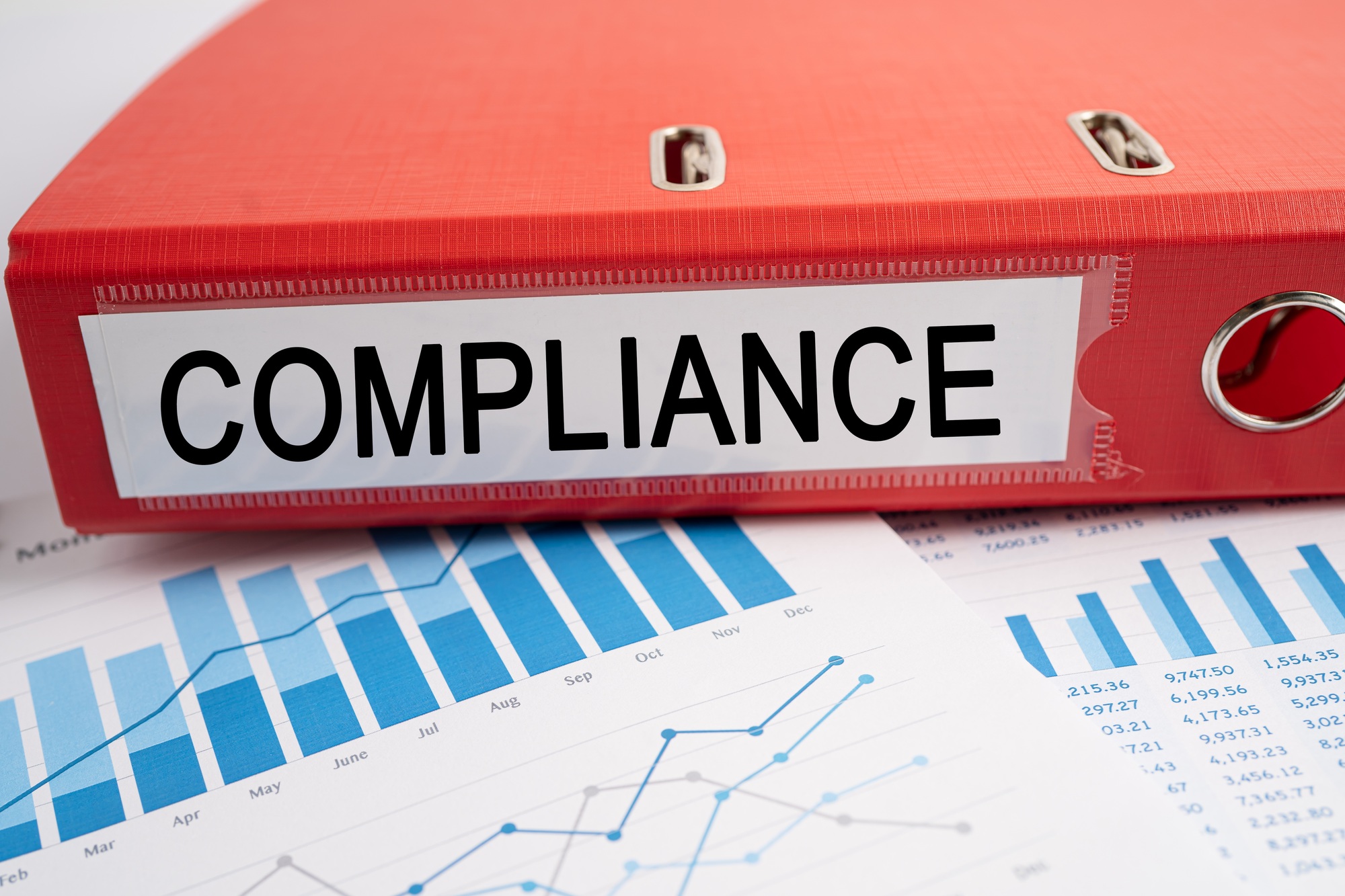
The Children’s Online Privacy Protection Act (COPPA) is a critical law that protects children’s online privacy, particularly for those under 13. But did you know its reach goes beyond the United States?
COPPA applies to any website or online service collecting personal information from children, no matter where the service operates. Think of it as a digital safety net that stretches across the globe.
When a website knowingly collects personal information from children, it must obtain verifiable parental consent. This gives parents the power to decide what information is shared online. Imagine needing your parents’ approval before sharing a secret—that’s the essence of COPPA!
Plus, COPPA requires websites to provide clear notifications about their data collection practices. This serves as a friendly signpost, helping parents steer the complex world of online privacy. Violating COPPA can lead to severe consequences, including hefty fines from the Federal Trade Commission (FTC).
In our increasingly digital place, COPPA is necessary for ensuring children’s online safety and safeguarding their personal information. Understanding COPPA’s implications is critical for anyone involved in online services aimed at children.
Application of COPPA to International Websites
The Children’s Online Privacy Protection Act (COPPA) extends its reach beyond U.S. borders. If your website or app knowingly collects personal information from children under 13 in the U.S., COPPA applies, no matter where you are located. Think of it as a global safety net, protecting children’s online privacy everywhere.
International websites must obtain verifiable parental consent before collecting any children’s data. This means providing clear notifications and following strict privacy policies. Just as schools require permission slips for field trips, these sites need consent to make sure kids’ safety online.
Ignoring COPPA can lead to serious violations and hefty fines. The Federal Trade Commission (FTC) actively enforces these regulations, ensuring that even foreign operators comply with U.S. standards. It’s like having a referee in a game, maintaining fairness and safety for all players!
Compliance with International Privacy Laws
Compliance with international privacy laws is critical for online services that collect personal information from children. Think of these laws as a protective umbrella, shielding children’s data from misuse. The Children’s Online Privacy Protection Act (COPPA) requires verifiable parental consent before gathering data from kids under 13, ensuring their online safety.
What about services that operate globally?
They must steer a complex maze of regulations, much like a traveler using a map in an unfamiliar city. For instance, a website targeting children in the U.S. but based overseas still needs to comply with COPPA. This demands a thorough understanding of how to obtain verifiable consent and safeguard children’s personal information, regardless of location.
COPPA acts as a guiding star, helping businesses protect children’s online privacy while fostering trust with parents. As technology evolves, our understanding of these laws must adapt, ensuring every child’s information is treated with the highest level of care.
COPPA and Schools
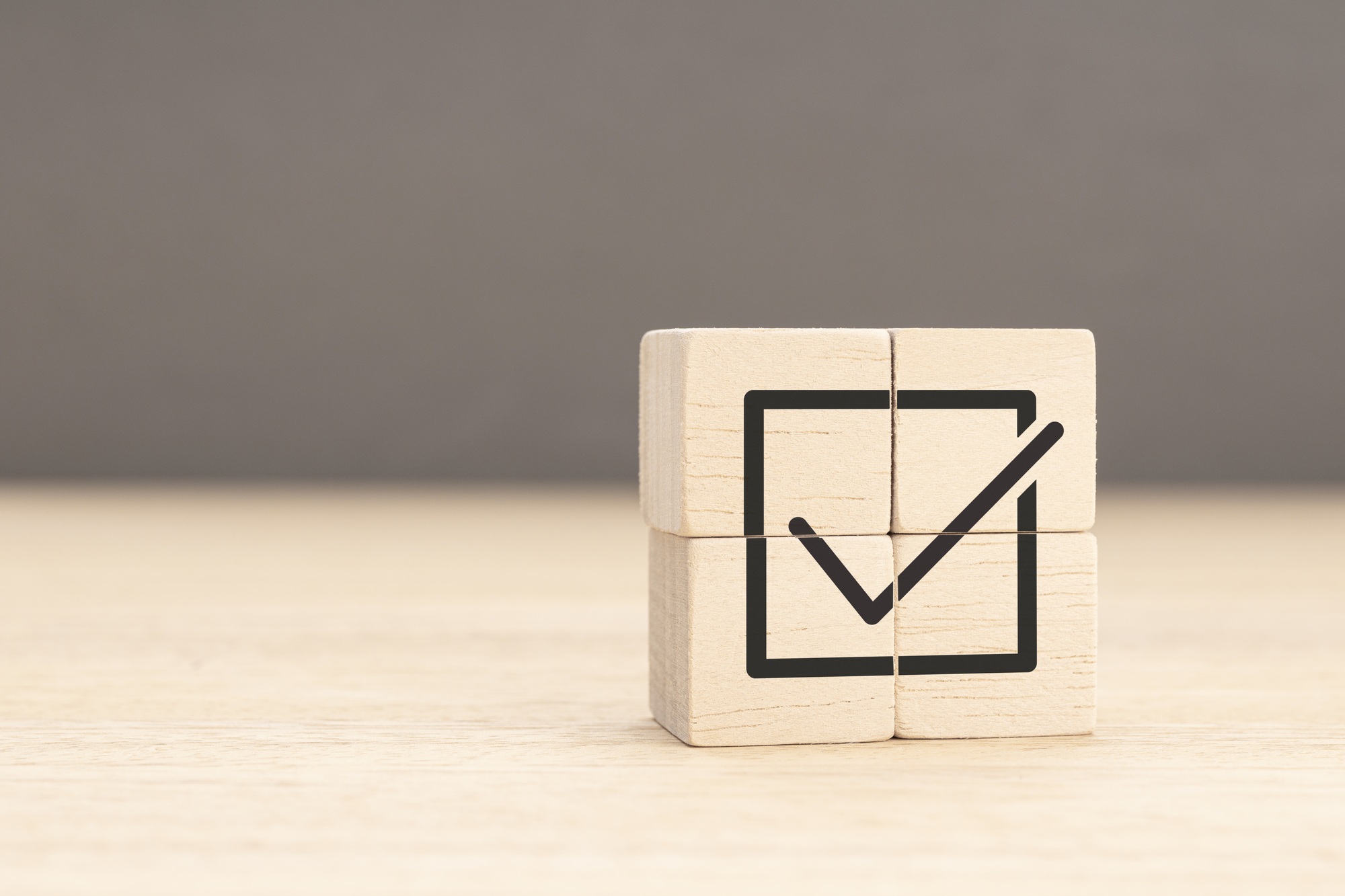
The Children’s Online Privacy Protection Act (COPPA) is a critical shield, protecting children under 13 from unauthorized data collection. But what does this mean for schools?
When schools use online services or apps, they often collect personal information from students. COPPA requires these services to obtain verifiable parental consent before gathering any data. Think of it like asking for permission before going on a field trip—schools must inform parents and get their approval.
Schools can act on parents’ behalf, but only for educational purposes. Imagine a teacher using a child-directed website to increase learning. If that site collects data, the school must make sure it follows COPPA rules. Key requirements include:
- Provide Notice: Clearly inform parents about what information is collected.
- Obtain Consent: Secure parents’ approval before any data collection.
- Data Security: Protect the collected information with strong security measures.
COPPA serves as a guardian for children’s online data, ensuring schools and websites work together to safeguard young users. By following these guidelines, schools can nurture a safer digital learning environment.
Application of COPPA to Schools
The Children’s Online Privacy Protection Act (COPPA) plays a critical role in schools, mandating verifiable parental consent before any online service collects personal information from children under 13. Imagine a digital playground where kids can only venture forth with their parents’ permission!
Schools must make sure that the online tools they use are COPPA-compliant. This means verifying that any website or app targeting children has clear privacy policies and handles data responsibly. Think of it as a protective shield, guarding children’s online privacy throughout their educational experience.
COPPA casts schools as vigilant protectors of student data, making certain that children’s information stays safe and secure. Are your favorite educational apps genuinely COPPA-compliant?
Role of Schools in Obtaining Parental Consent
Schools are critical in obtaining parental consent as mandated by the Children’s Online Privacy Protection Act (COPPA). Think of them as the sentinels of the digital place, ensuring that online services collecting children’s data have verifiable parental consent. This task requires schools to provide clear notifications to parents, detailing what personal information will be collected and how it will be used.
Imagine schools as a bridge, connecting students to the expansive digital world while ensuring safety. They must confirm that every website or online service used in classrooms complies with COPPA regulations, protecting children’s personal information from misuse. By doing this, schools empower parents to retain control over their child’s online privacy, fostering a secure learning environment.
COPPA and Social Media
COPPA, the Children’s Online Privacy Protection Act, is a critical federal law designed to protect children under 13 in the digital place. Imagine it as a sturdy shield, blocking kids from sharing personal information without parental approval. But what does this mean for social media?
Any website or online service targeting children must obtain verifiable parental consent before collecting personal data. Think of it as a gatekeeper: without the parent’s key (consent), children can’t enter the online playground.
To comply with COPPA, platforms must:
- Provide direct notice: Clearly inform parents about what data is collected and how it will be used.
- Seek verifiable consent: Make sure that consent is obtained precisely from a parent or guardian.
- Retain minimal information: Keep personal data only as long as necessary for the service.
Neglecting these COPPA regulations can lead to severe penalties, including hefty fines. So, when considering sharing your child’s information online, remember: COPPA is your trusted ally in safeguarding their data!
Application of COPPA to Social Media Sites
COPPA acts as a digital guardian for children’s privacy on social media sites. These platforms must obtain verifiable parental consent before collecting personal information from users under 13. Think of it as a vigilant gatekeeper, preventing unauthorized access to sensitive data. Failing to comply can result in severe fines and damaged reputations.
- Privacy Notices: Social media sites must transparently disclose the personal information they collect.
- Data Retention: They can keep children’s data only as long as necessary for their services, like a library that only holds onto books that are checked out.
- Compliance Monitoring: Regular audits are necessary to make sure adherence to COPPA regulations, much like a coach reviewing game footage to improve performance.
COPPA and Marketing to Children

COPPA, or the Children’s Online Privacy Protection Act, acts as a digital shield for children under 13, safeguarding their online privacy in a vast and unpredictable digital world. But how does this law operate?
When websites or online services want to collect personal data from children, they must initial obtain verifiable parental consent. Think of it like needing a parent’s signature for a school trip—it’s all about ensuring kids’ safety.
COPPA mandates that operators provide a direct notice to parents, outlining what information is collected and how it will be used. This transparency empowers parents to make well-informed choices. If a site collects data from children without consent, it risks serious COPPA violations and hefty fines.
In a place where targeted advertising reigns, COPPA places children’s online safety at the forefront. It’s not just about following rules; it’s a pledge to respect children’s rights and nurture a safer digital place.
Restrictions on Advertising to Children Under COPPA
Restrictions on Advertising to Children Under COPPA play a critical role in safeguarding kids’ online privacy. Picture leaving your diary wide open; that’s the vulnerability children face when their data is mishandled. Under COPPA, websites and apps must secure verifiable parental consent before gathering any personal information from children under 13. This mandate forces companies to deliver clear notices and limits targeted advertising, ensuring children’s data remains protected.
Consider this: when a website collects personal information from kids, it must comply with stringent COPPA regulations. This includes providing age-appropriate advertisements that are not misleading. COPPA acts as a protective barrier, enabling children to steer the online place safely, shielded from intrusive ads and unauthorized data collection.
COPPA and User-Generated Content
The Children’s Online Privacy Protection Act (COPPA) serves as a digital guardian, protecting children under 13 from online threats. Imagine it as a watchful parent in a crowded park, ensuring kids stay safe. COPPA requires websites and online services that collect personal information to obtain verifiable parental consent before gathering any data.
So, how does this connect to user-generated content, like videos or social media comments?
If a platform allows children to share their personal information, it must comply with COPPA regulations. This means clearly informing parents about what data is collected and how it will be used. Ignoring these rules can result in severe COPPA violations and hefty fines!
Also, COPPA encourages safe online practices. It mandates that operators do reasonable measures to protect children’s data, testing their digital footprint secure. Whether your child is gaming or sharing content, COPPA is necessary for safeguarding their information.
Application of COPPA to User-Generated Content
The Children’s Online Privacy Protection Act (COPPA) is a critical shield for user-generated content, requiring platforms to obtain verifiable parental consent before gathering personal information from children under 13. Think of it as a digital guardian, empowering parents to monitor their children’s online activities.
When kids engage on social media or gaming sites, these platforms must transparently communicate their data collection practices. If a site “knowingly collects personal information” from minors, it must adhere to COPPA regulations. Ignoring these rules is like having a lifeguard at a pool who looks the other way—safety is compromised.
COPPA safeguards children’s online privacy by mandating operators to disclose their data handling practices clearly. This includes specifying what data is collected, how it’s used, and how parents can manage it. Non-compliance with COPPA can lead to hefty fines, making adherence not just a legal obligation, but a cornerstone of internet safety.
COPPA Compliance for Businesses
COPPA, or the Children’s Online Privacy Protection Act, is a critical law designed to protect children’s online privacy. It requires websites and services aimed at children under 13 to obtain verifiable parental consent before collecting personal information. Imagine it as a digital fortress, giving parents the power to oversee their children’s online activities.
If your website or app targets children, COPPA compliance is not just significant—it’s necessary. Here’s how to make sure you meet the requirements:
- Provide direct notice: Clearly communicate your data collection practices to parents before collecting any information.
- Obtain verifiable consent: Use trustworthy methods, like signed forms or credit card transactions, to confirm parental approval.
- Limit data collection: Gather only the information necessary for your service.
Ignoring COPPA can lead to serious consequences, including hefty fines from the Federal Trade Commission. By prioritizing children’s privacy, you not only comply with the law but also build trust with parents, creating a safer online environment for kids.
Benefits of Complying with COPPA
Complying with COPPA offers critical benefits for businesses. By prioritizing children’s online privacy, you build trust with parents—like a sturdy bridge connecting you to your audience. This trust enhances user engagement and loyalty, paving the way for long-term success.
Also, adhering to COPPA regulations protects you from hefty fines and legal troubles. Picture it as a compass steering a ship through stormy seas; following these guidelines keeps your business on track, allowing you to focus on growth instead of penalties.
- Enhanced reputation: Companies that prioritize children’s data protection gain positive recognition from families.
- Legal protection: Compliance remarkably reduces the risk of COPPA violations and the associated fines.
- Market advantage: Being COPPA-compliant distinguishes your brand in a competitive place.
COPPA and Consumer Impact
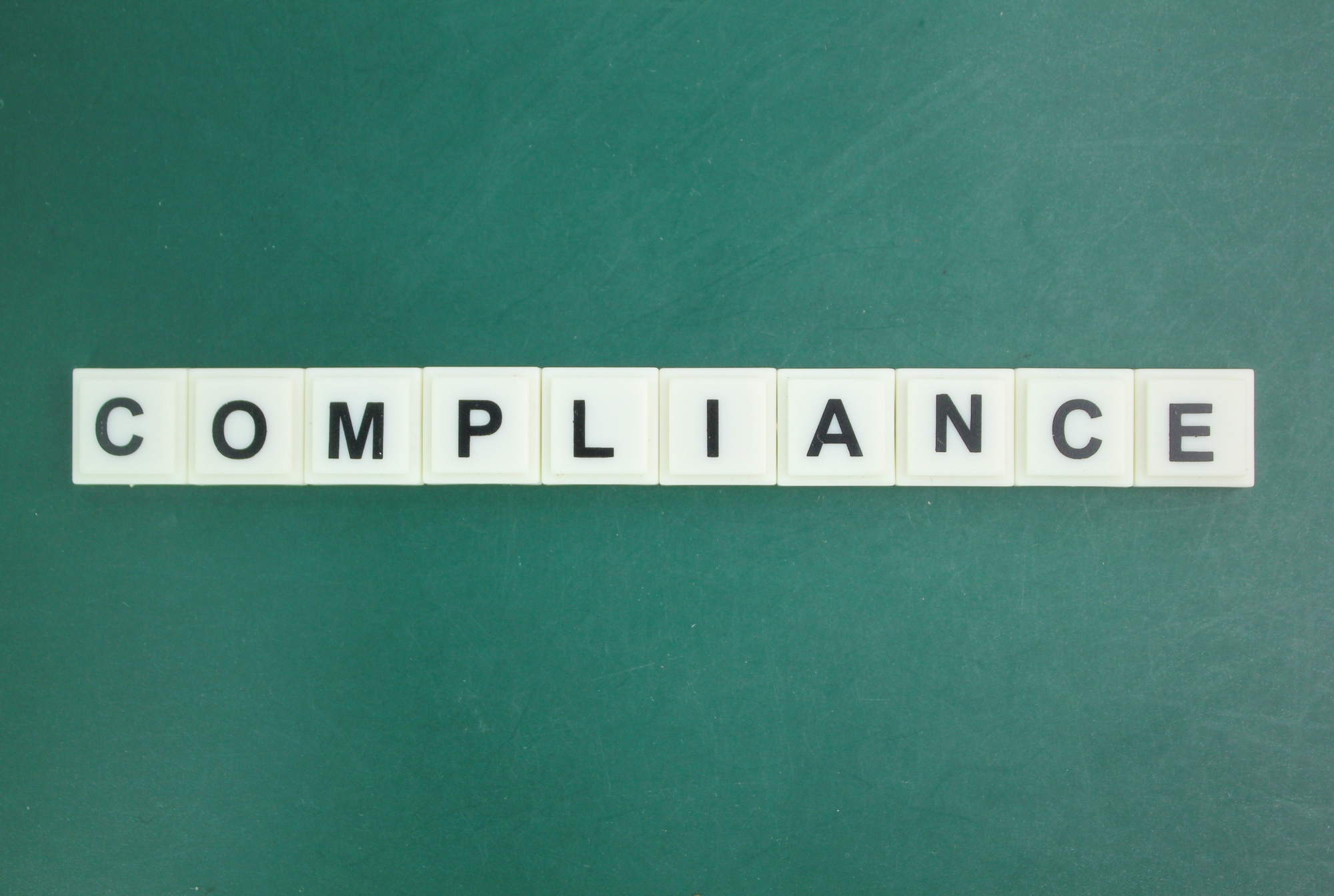
The Children’s Online Privacy Protection Act (COPPA) serves as a digital shield, protecting kids under 13 from online dangers. Imagine it as a superhero guarding children’s personal information as they explore online services. How does this superhero work?
COPPA requires websites to obtain verifiable parental consent before collecting any data from children. Parents must explicitly say, “Yes, I allow my child’s information to be collected,” before any data gathering can begin.
Why is this so significant?
Think of it like giving someone the key to your house. You wouldn’t hand your key to just anyone! COPPA ensures that only trustworthy websites can access children’s data. If a site collects personal information without consent, it’s like a break-in. The Federal Trade Commission (FTC) enforces these rules, holding companies accountable with hefty penalties for violations.
In a place where online privacy is critical, COPPA empowers parents and strengthens the protection of children’s data. It’s a critical step in creating a safe digital playground for our young explorers!
Impact of COPPA on Consumers
The Children’s Online Privacy Protection Act (COPPA) is a critical guardian of children’s online privacy. It mandates that companies obtain verifiable parental consent before collecting personal information from children under 13. This law ensures businesses are transparent about their data practices, testing parents informed about what information is collected and how it’s used.
Imagine a candy store where kids can only pick treats with a parent’s approval. COPPA operates similarly, empowering parents to oversee their children’s online experiences. By shielding young users from the dangers of data collection, COPPA fosters a safer digital environment.
- Empowers Parents: COPPA gives parents control over what information is gathered about their children.
- Encourages Transparency: Online services must clearly communicate their information practices and secure consent.
- Reduces Risks: By requiring consent, COPPA minimizes the chances of children’s data being misused.
COPPA not only protects children but also fosters trust between parents and online platforms. In a place where digital interactions often match face-to-face ones, understanding COPPA’s impact is necessary for both parents and businesses.
Benefits of COPPA for Consumers
The Children’s Online Privacy Protection Act (COPPA) is a critical shield for consumers, especially parents. It mandates that online services secure verifiable parental consent before gathering any personal information from children under 13. Imagine it as a digital fortress, protecting your child’s online privacy and empowering you to control their data.
COPPA demands clear direct notices, allowing parents to understand the information practices of online platforms. Visualize yourself as the vigilant gatekeeper of your child’s digital area, ensuring their safety online. This law not only prevents unauthorized data collection but also fosters a safer digital environment for children.
COPPA and State Privacy Laws

COPPA, or the Children’s Online Privacy Protection Act, acts as a digital fortress for children under 13, ensuring their online privacy is fiercely protected. What does this mean for websites and online services aimed at kids?
They must obtain verifiable parental consent before collecting any personal data. Parents have the right to know what information is gathered and how it’s used.
Imagine a carnival where a game operator asks for your ticket before you can play. Similarly, COPPA mandates that online services provide a clear direct notice to parents, outlining their data collection practices. This notice serves as a roadmap, guiding parents through the complicated maze of online privacy.
But COPPA’s influence extends further. It requires operators to adopt reasonable measures to safeguard children’s personal information. This includes limiting data collection and ensuring secure storage. If a website knowingly collects personal information without consent, it faces hefty penalties. Understanding the intricacies of COPPA is necessary for anyone managing online services targeted at children.
| COPPA Requirements | Purpose |
|---|---|
| Obtain verifiable parental consent | Ensures parents are informed about data collection |
| Provide direct notice to parents | Clarifies data collection practices |
| Limit data collection | Safeguards children’s privacy |
Comparison of COPPA to State Privacy Laws
Comparing COPPA to state privacy laws is like choosing between a sturdy umbrella and a raincoat. Both offer protection from the storm, yet each does so in distinct ways. The Children’s Online Privacy Protection Act (COPPA) is a federal law focused on safeguarding children’s online privacy. It requires verifiable parental consent before collecting personal information from kids under 13. On the contrary, state privacy laws vary widely, often providing broader protections that apply to individuals of all ages.
For instance, COPPA mandates that websites targeting children clearly disclose their information practices. Meanwhile, some state laws extend further, granting individuals rights such as the ability to delete personal data. So, while COPPA serves as a strong shield for children, state laws act as an additional layer of armor for everyone.
| Aspect | COPPA | State Privacy Laws |
|---|---|---|
| Target Audience | Children under 13 | All ages (varies by state) |
| Parental Consent | Required | Varies (some require consent) |
| Privacy Rights | Limited to children’s data | Broader rights, including data deletion |
COPPA offers critical protections for children’s data, while state laws improve in general digital privacy by addressing a wider range of issues. Understanding both frameworks is necessary for finding your way the complex place of online privacy.
Similarities and Differences Between COPPA and State Privacy Laws
When comparing COPPA and state privacy laws, picture them as two distinct shields safeguarding children’s online safety. Both aim to protect children’s personal information, yet they vary greatly in scope and enforcement.
- Similarities: Both laws require parental consent for collecting data from minors and emphasize transparency in information practices.
- Differences: COPPA is a federal law targeting children under 13, while state laws often cover a broader age range and additional data types.
Think of COPPA as a specialized lock on a child’s online door, while state laws act like a vigilant neighborhood watch, offering wider community protection. How do these frameworks work together to make sure safety in the digital world?
Summing up
COPPA is a critical law that protects children’s online privacy. It requires websites and apps to obtain parental consent before collecting personal information from kids under 13. This law empowers parents to control what information is shared about their children. Understanding COPPA’s importance enables both parents and businesses to create a safer digital environment for young users. By adhering to COPPA, we not only shield children but also allow them to steer the internet with confidence and security.
Frequently Asked Questions
What is COPPA in simple terms?
COPPA is a law that protects kids under 13 online by requiring parental consent before collecting their personal information.
What is COPPA in business?
COPPA in business means adhering to regulations that protect children’s privacy online, requiring parental consent for data collection.
What is the COPPA for dummies?
COPPA is a law that protects kids’ online privacy, requiring parental consent before collecting info from children under 13.
What is description COPPA?
COPPA, or the Children’s Online Privacy Protection Act, safeguards kids under 13 by requiring parental consent for data collection online.
Image Via Envato: grafvision, alesaberlezova, microgen, fauziEv8, composter-box, wirestock, chuemoonrin, jirkaejc, fotodestock, chormail, kovalnadiya, DC_Studio, nateemee, iLixe48, nuttapong_mohock, Vladdeep, AntonioGravante, msvyatkovska, MargJohnsonVA, laguna947, nansanh, NomadSoul1


